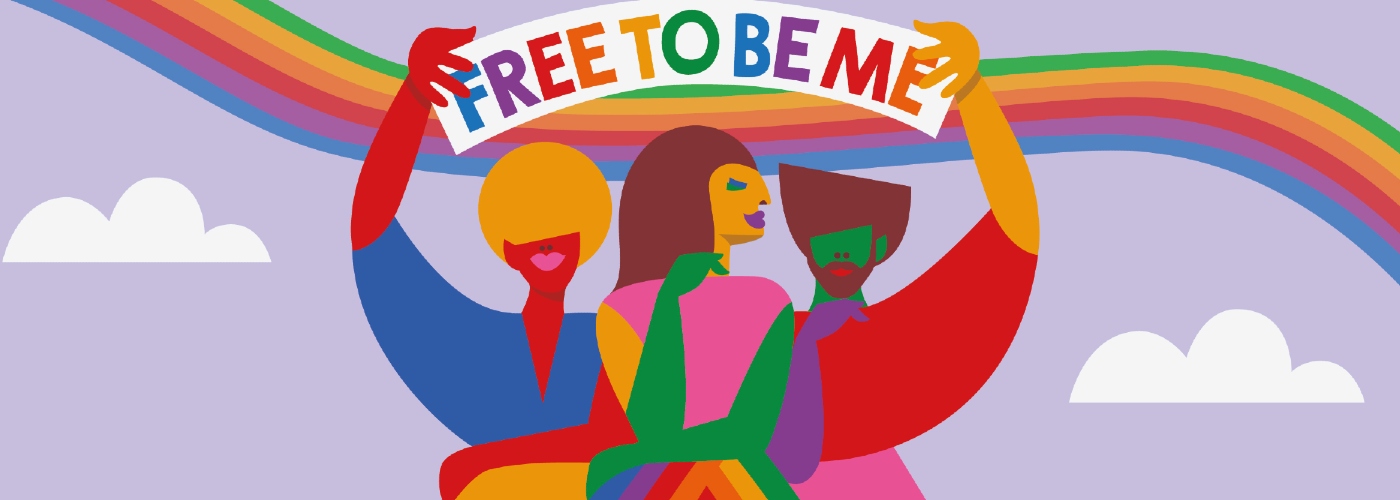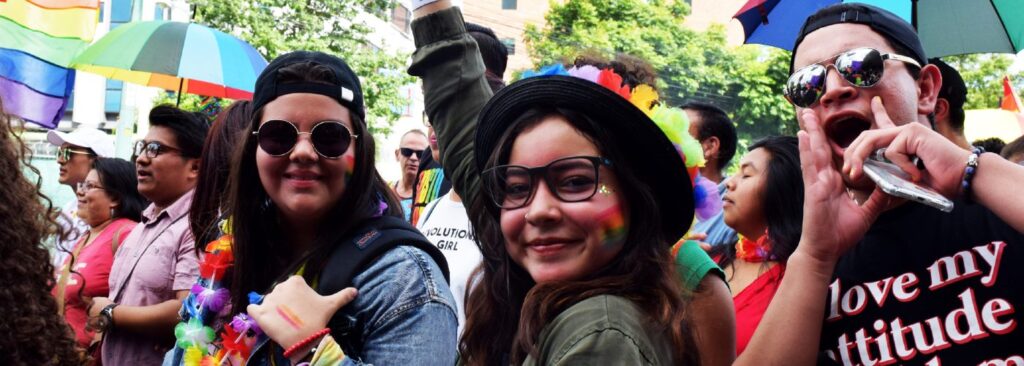Stop the cycle of poverty. We have a right to live free and in dignity!
The International Day Against Homophobia, Transphobia and Biphobia (IDAHOT), celebrated every May 17 in more than 130 countries, draws global attention to the violence and discrimination faced by lesbian, gay, bisexual, transgender, and intersex people, as well as people with diverse sexual orientations, gender identities or expressions, and sex characteristics (SOGIESC).
The 2022 IDAHOT annual theme is: Our Bodies, Our Lives, Our Rights. An essential part of being able to live free and in dignity – but one often overlooked – is the chance to get a job that provides a living.
The discrimination and exclusion experienced by LGBTIQ+ people and those with diverse SOGIESC make them, for example, drop out of school and engage in precarious jobs, often also putting them at risk of exploitation and sexual or gender violence. At the same time, economic hardship is highly correlated with poor health. We have seen how the Covid-19 pandemic has caused more job and income loss around the world, which worsens the position of those already experiencing varying degrees of stigma and violence.
“Inclusive societies fare better, and businesses with a diverse workforce tend to be more successful.”
“The socioeconomic situation of LGBT people in Mozambique is dire,” shares an LGBTIQ+ activist. “Most of the time, they quit school, which ruins their chances of getting a decent job.” Not only in Mozambique, but worldwide, lesbian, gay, bisexual, transgender, intersex and queer (LGBTIQ+) people face economic hardship. Hivos’ Free to be Me program is one of the first of its kind to specifically develop an advocacy agenda to pave the way for mainstreaming sexual orientation, gender identity and expression, and sex characteristics (SOGIESC) in economic development programs.
The context
For many intersex people, the economic downward spiral begins early in life when they are labeled as “unnatural,” “bewitched,” or worse, and rejected by family, schools, peers, and other social contacts. Whether subjected to genital mutilation or not, the likelihood they will be the target of sexual and gender-based violence is high, leading to impaired mental health and low educational levels. For some, access to identity documentation is difficult or impossible, which further diminishes their chances in the job market.
For all LGBTIQ+ people, discrimination at school and work, the constant fear of being outed, and/or the inability to be fully themselves at work, means fewer promotions, more precarious working conditions, and less job security.
For many trans people, feeling and/or being seen as gender non-conforming results in being bullied at school, which often makes them drop out. Their difficulty in obtaining identity cards, school diplomas, proof of military service, and other documentation required for the regular labor market forces leaves them to seek precarious, often illegal or dangerous jobs. For some, the inability to access or afford medical transition severely impacts their self-confidence and ability to fully function in daily life.
Lesbian and bisexual women often have a hard time surviving on their own, especially in societies where women are expected to marry a man for economic survival. Just like too many other girls, society invests far less in their education than in boys’, and once employed, their income is far less than that of men doing the same job – especially if they appear unmarried.
Economic development
Economic development is a very sizeable part of official development assistance, yet these funds rarely reach LGBTIQ+ communities. In 2017 and 2018, only 0.04% of all Official Development Assistance (ODA) was used specifically to improve the lives of LGBTIQ+ people, almost exclusively through human rights or HIV programs.
Research has shown that anti-LGBT laws – together with the attitudes that keep these laws in place – have a direct impact on a country’s economy. Inclusive societies fare better, and businesses with a diverse workforce tend to be more successful. It is therefore also in the economic interest of countries and businesses to invest in LGBTIQ+ people and communities.
Free to be Me and economic inclusion
Hivos’ Free to be Me program is opening up a new way of looking at LGBTIQ+ communities as economically underdeveloped and in need of economic development interventions.
The Free to be Me program supports LGBTIQ+ people’s access to economic development programs with a two-pronged approach. Bottom up, by giving community groups the tools and information they need to advocate effectively and empowering them to interact with actors at the national level. Top-down, with a trailblazing global approach showing both the need for LGBTIQ+ economic development and providing solutions that can be replicated and scaled for maximum effect.
Currently, LGBTIQ+ community groups, and economic development actors such as (development) banks, ministries of economy and of labor, (impact) investors and aid organizations, have a hard time finding each other. The program therefore wants to train community groups in using well-researched evidence and concrete solutions to convince these institutions to include LGBTIQ+ people in their programming.
At the global level, the program aims to bring together actors who play – or should play – a role in LGBTIQ+ inclusion: the World Bank and regional development banks, governments, businesses, researchers, and civil society. With them we will create a clear definition of LGBTIQ+ economic development and provide tools for effective interventions.
Last but not least, Hivos plans to pilot a new set of economic development interventions, accompanied by research into their effectiveness, so that at the end of our program in 2025 we will have a catalogue of proven interventions that can be scaled up or replicated.
Our activities and our partners
The Free to be Me program also supports LGBTIQ+ groups and communities in other ways. It builds and maintains strong foundations for civil society groups, improves public perception, and advocates for better laws and policies in 14 countries in Africa, the Middle East and Southeast Asia.
The program’s alliance consists of six diverse and experienced organizations that are strongly committed to improving the lives of LGBTIQ+ people worldwide. Positive Vibes improves the well-being and resilience of activists, communities and organizations, and helps them be more vocal. ILGA World is the global network of LGBTIQ+ organizations, with 1654 members in 162 countries and an influential voice at the international level. Technical partner Sogi Campaigns has a wealth of experience in supporting LGBTIQ+ activists to positively influence public opinion. The Global lnterfaith Network knows how to engage religious leaders in dialogues with LGBTIQ+ people of faith. Workplace Pride has valuable networks of (multinational) companies and know-how in workplace inclusion.
If you have questions or suggestions, you can reach out to Lucy Mung’ala, Hivos’ Gender Equality, Diversity and Inclusion Impact Lead.


